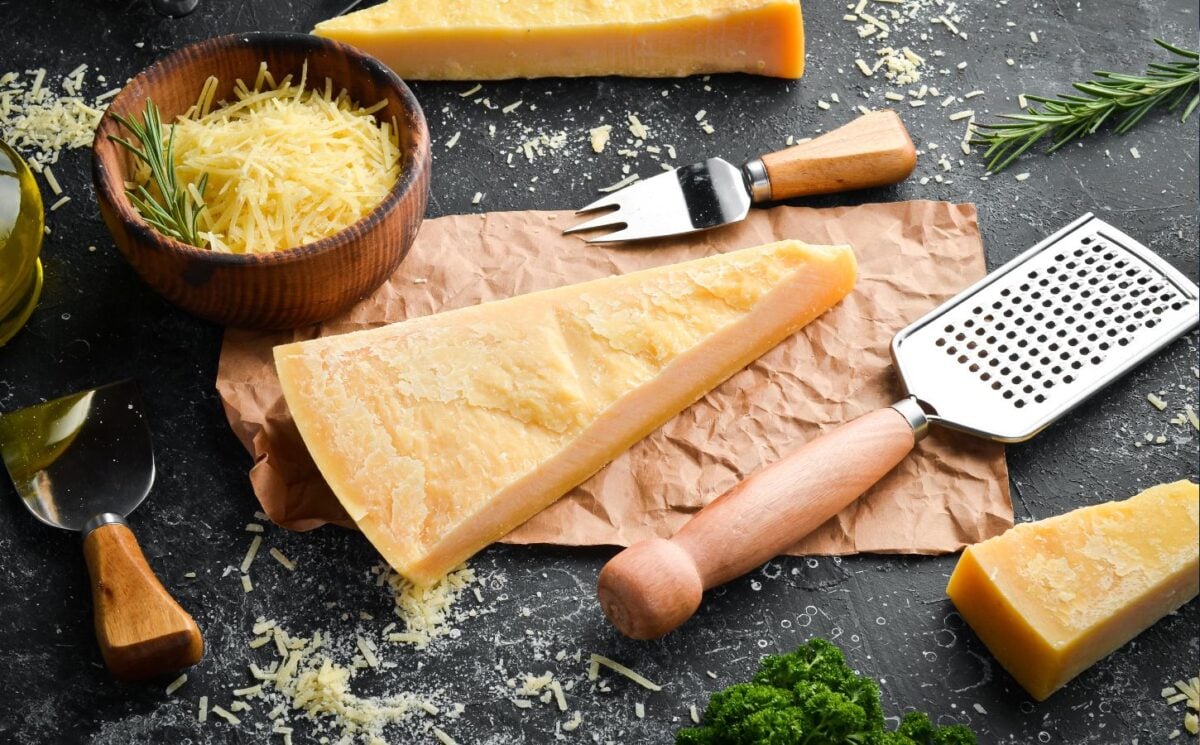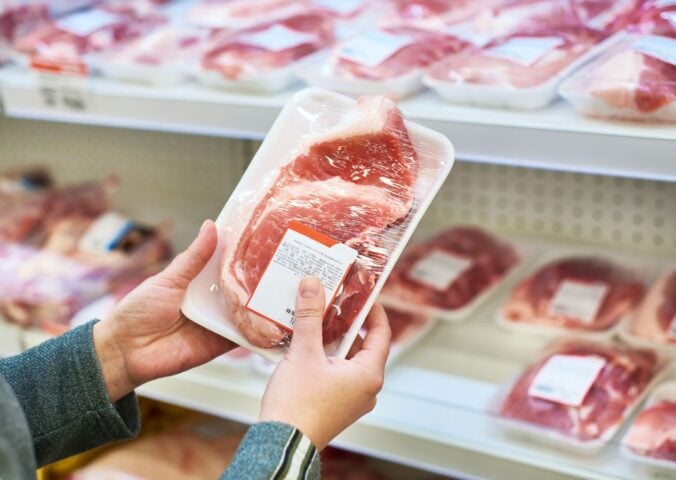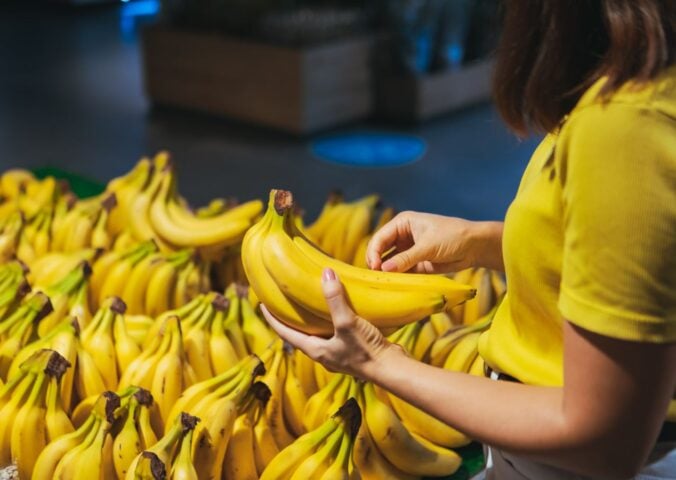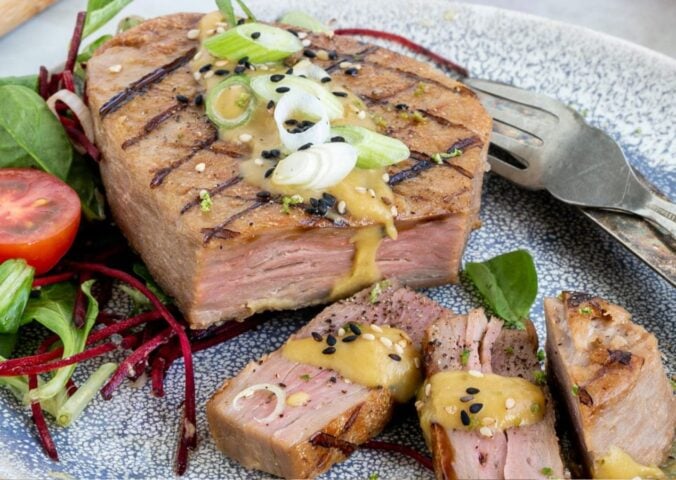Traditional dairy cheese is often the final animal-derived food given up by aspiring vegans, and it’s also usually the one thing that non-vegans say they could never do without.
It’s no wonder, considering that cheese has a culinary history dating back over 7,000 years – beyond the beginning of the Bronze Age – and is famous for its variable and complex flavors and versatility (though its nutritional value is increasingly being called into question).
Vegans don’t eat cheese because it’s a direct product of animal exploitation. The dairy industry has been shown time and time again to inflict suffering on cows. It’s also known to be bad for the environment. But despite this, vegetarians still embrace it as more “ethical” than meat and even milk. One recent study dubbed this “the cheese paradox.”
When it comes to some cheeses, the cruelty extends even further than the exploitation of cows for their milk. Certain types, including the Italian hard cheese parmesan, are made according to strict, traditional production methods, which include specific animal ingredients.
Here’s exactly how parmesan is made, and why the popular hard cheese isn’t OK for a vegan – or even vegetarian – diet, plus some vegan alternatives.
How is parmesan made?
Parmesan, or Parmigiano-Reggiano, is a specialty hard cheese made from unpasteurized cow’s milk, heavily salted and aged for at least 12 months to cultivate its unique flavor.
According to CLAL, an Italian dairy economic consulting firm, Parmigiano-Reggiano accounts for around 18 percent of all national milk production in Italy, and Parmigiano-Reggiano cheese needs 550 liters of milk to make a single wheel.
(For context, dairy milk produces an average of 1.39kg of CO2 equivalents per liter, so one wheel of authentic Parmesan is responsible for around 764.5kg of greenhouse gas emissions – the equivalent of 86 gallons of gasoline or 856 pounds of coal burned.)
There are other varieties of Italian-style hard cheese, but to be sold as parmesan, a cheese must be manufactured in one of a select few provinces – primarily Parma and Reggio Emilia, as well as parts of Bologna, Modena, and Mantua – using traditional cheesemaking methods.
This is known as “Protected Designation of Origin,” or PDO, and is designed to protect food and drinks with particularly strong links to the place in which they are made. As with Champagne, or even other cheeses like Gorgonzola and Camembert.
Why don’t vegans eat parmesan?
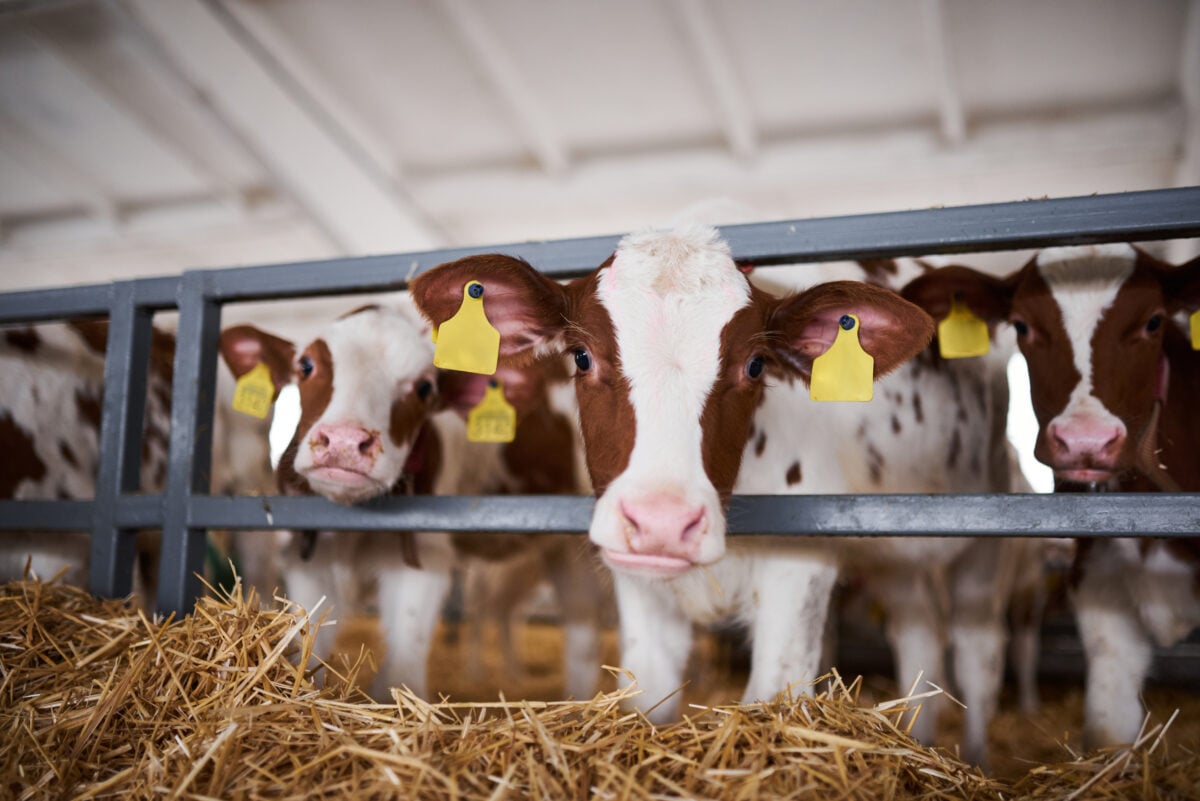
Vegans don’t eat parmesan because vegans don’t eat cheese at all, or animal-derived ingredients like rennet. Vegans generally also avoid all animal foods, including everything from the obvious (meat, dairy, and eggs) to the less obvious (honey).
Typically, veganism also extends beyond food to exclude leather, cosmetics, and other products that are linked to animal exploitation either through production or testing. (To whatever extent this is practical while living within the constraints of capitalism.)
As noted earlier, dairy production is often thought of as more ethical than the meat industry, but the realities of industrialized dairy farming arguably involve just as much cruelty, trauma, and death. (In fact, 20 percent of all beef comes from ex-dairy cows anyway.)
The life of a cow in the dairy industry typically includes repeated, forceful impregnation followed by immediate separation from offspring and confinement. Around 90 percent of dairy cows in the US are kept primarily in confined, indoor spaces. Then, as they get older, cows are frequently branded, dehorned, and have their tails docked without anesthesia.
At the end of their lives, cows are often transported long distances – in even more confined conditions – before finally being killed. Cows are often stunned with a bolt gun, but many are still conscious at the point they have their throats cut.
As dairy cows typically only produce very high milk yields for an average of three years, they are normally killed at less than a fifth of their natural lifespan of 25 years. Approximately 9.3 million cows are used to produce milk for human consumption in the US alone.
Why parmesan isn’t even vegetarian
Parmesan must also be made using chymosin, or rennin, a protease which is found in rennet – the complex combination of enzymes produced by the stomachs of young ruminant mammals, like calves. In newborn animals, chymosin curdles the milk they ingest, allowing for better absorption of nutrients. In cheese-making, chymosin is introduced to create curds. Many people are unaware that the inclusion of rennet in parmesan means it cannot even be considered suitable for vegetarians.
While chymosin can technically be sourced from plants and fungi, the traditional production methods of Parmesan dictate that the ingredient is animal-derived. This variety is harvested from calves slaughtered for the veal industry, which is particularly controversial.
In the veal industry, the majority of calves are slaughtered between 16 and 18 weeks, with some killed before reaching one day and others as old as 24 weeks – still only around six months. In the UK and US, veal consumption itself has been steadily decreasing, but it remains popular in mainland Europe where the practice originated, within the dairy industry.
Chymosin is harvested from the fourth wall of the young animals’ stomachs and dried, then rehydrated in water and added to cheese as a liquid solution. While the cheese industry’s use of rennet is common knowledge for some, every day new people discover the reality of parmesan and take to the internet to express their dismay.
Last year, one user posted on X, the social media site formerly known as Twitter: “Just found out parmesan cheese isn’t vegetarian. Don’t reach out,” while a TikTok user noted that she has been unknowingly eating it the whole time she’s been vegetarian.
Parmesan isn’t the only dairy cheese to still be manufactured with rennet, and authentic Manchego, Pecorino Romano, Ricotta, mozzarellas, and many more using it as an ingredient.
What about vegan cheese?
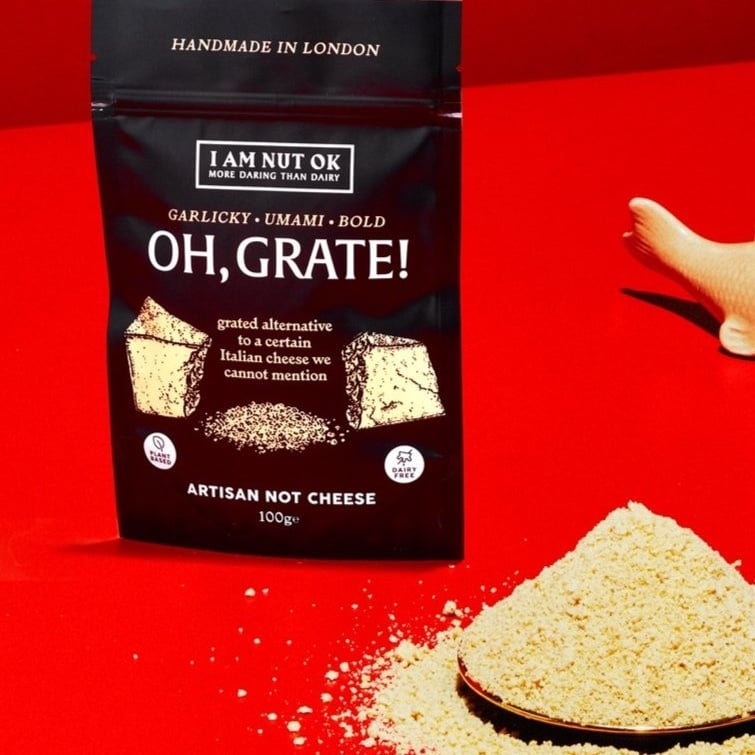
As more and more people find out about the reality of the meat and dairy industries, consumer demand for plant-based and cruelty-free dairy alternatives is on the rise. More than four out of 10 US households now drink plant milk, and vegan cheese sales are predicted to reach USD $7 billion by the year 2030 – up from USD $2.5 billion in 2020.
Vegan cheese has also never been more accessible, with many supermarkets introducing extensive and affordable private-label ranges. Meanwhile, new technology is also leading the way for a “third wave” of next-level vegan cheese, with companies embracing traditional cheesemaking methods and combining them with plant-based ingredients.
There are already plenty of plant-based alternatives to parmesan and Italian hard cheeses on the market, ranging from simple swaps – such as this nutritional yeast adaption from the Minimalist Baker – to Violife’s Parmesan-style Prosociano wedge.
I Am Nut OK – Vegan Oh, Grate!
Hackney’s I Am Nut OK is one of the UK’s top artisanal vegan cheese brands, and the hard cheese alternative “Vegan Oh, Grate!” is no exception. On its website, the company says: “We cannot legally describe this as a vegan Parmesan, so we’re not! It’s not Parmesan in any sense – but it is a delicious alternative [to] something else.”
Pimp My Salad Vegan Cashew Parmesan
The Pimp My Salad Parmesan-style sprinkles combine cashew nuts, sunflower seeds, nutritional yeast, kale, lemon, and Himalayan pink salt for a zingy, cheesy topping. It’s also nutritious, particularly when compared with coconut oil-based plant cheeses. Pimp My Salad products are available in the UK from shops like Holland & Barrett, Waitrose, and more.
Good Carma’s Flavour Fusion
Good Carma also combines nuts with nooch for its Flavour Fusion products, but uses almonds, giving them an additional boost of calcium. The range includes three distinct varieties: Original flavor, Chili flavor, and Garlic flavor.
Violife’s Prosociano
Since 2017, Violife has become one of the go-to vegan cheese brands, and its Prosociano wedge shows why. It even looks the part and can be grated over all manner of pasta and pizza dishes just like traditional Parmesan. It’s available online and in stores.
Green Vie Foods’ Parveggio
Green Vie’s vegan hard cheese Parveggio is also available in most major supermarkets, and the brand describes its product as having a “sharp, fruity, nutty taste that will add great [savoriness] to your pasta, salads, and risotto!”
Nurishh Gran Vegiano
Another coconut oil entry, Nurishh’s “rich and bold” Gran Vegiano is fortified with B12 and is packaged pre-grated. Nurishh is the first 100 percent plant-based range from the French multinational cheesemaker Bel Group.
Kinda Co Italian Style
This Italian-style cheese from Kinda Co contains just a handful of ingredients, namely almonds, nooch, salt, and onion powder. The company notes that the vegan cheese even browns in the oven, making it a perfect pair with parmigiana.
